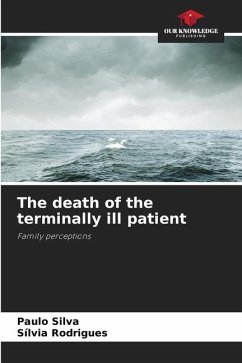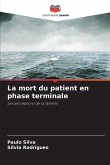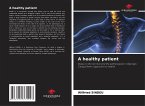This book aims to reveal various aspects of the dying process and, in particular, people's perceptions of their terminally ill family member. In this sense, we are exploring the meaning that experiencing a terminal situation has for people who are closely following the dying process of a loved one, with the aim of using the data provided to define guidelines for the conduct of health professionals in such situations. In reality, the end of a significant person's life entails multiple changes in the daily lives of their relatives, namely in routine activities and in the management of feelings and beliefs. Death is invariably viewed from a negative perspective. Death and suffering are meaningless. Faced with this situation, health professionals are called upon to make choices and to act as catalysts in the search for meaning in suffering. However, clinical interventions with clear objectives are required, defined together with the patient and family, but above all taking into account the patient's interests and respect for their dignity.
Bitte wählen Sie Ihr Anliegen aus.
Rechnungen
Retourenschein anfordern
Bestellstatus
Storno








